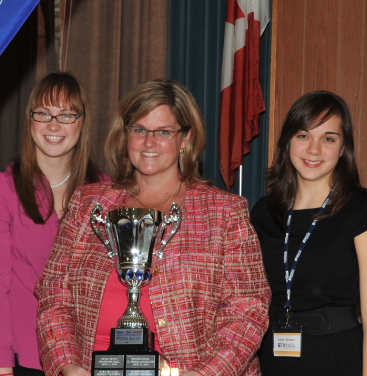
Track-Record of Innovation Continues at Algonquin College with Nine New Programs
With the ever-changing media, technological, and scientific landscape, finding a way to educate the next generation of skilled workers is more important than ever to give them a proper chance at success.
No one knows this more than Ottawa’s Algonquin College of Applied Arts which has been in the education and innovation business for over 45 years. With over 21,000 full-time students across their campuses, as well as more than 38,000 enrolled in continuing education, keeping up with the student populations and meeting their needs is a priority and requires an insane balancing act.
 For 2017, Algonquin is adding nine exciting programs to the current roster of 269 Ontario College Programs that each fill a much-needed role.
For 2017, Algonquin is adding nine exciting programs to the current roster of 269 Ontario College Programs that each fill a much-needed role.
The new online college certificates for trades, Trades Management, Trades Leadership and Trades Entrepreneurship, are teaching the critical skills to which individuals pursuing careers in skilled trades would naturally gravitate.
“These individuals move from being the skilled tradespeople, to then owning their own businesses, and moving up the ladder where they are working, even in larger organizations,” added Maggie Cusson, Dean of Academic Development. “The course is also online because these students will be professionals in their field, working, and will require flexibility and study on their own schedule.”
In addition to creating new programs, Algonquin is also refining and reimagining old ones. This is especially true the new Pre-Health Sciences Pathway to Certificates and Diplomas and Pre-Health Sciences Pathway to Advanced Diplomas and Degrees which are replacing what were formerly known as Pre Health Sciences and Pre-Health Nursing.
“These programs were created in recognition of the importance of the pathways into health programs and the growing number of new programs in that area,” explained Cusson. “These programs bridge what students may be missing from high school, prepare them with the right skills and background, and help them in terms of choosing the right career pathway.”
The new Building Information Modeling – Lifecycle Management Graduate Certificate is also an expansion on previous programs offered. Building Information Modeling has always been important, but taking facilities management or new construction from a lifecycle perspective is not only timely, but critical.
“This is a new process in the way that all buildings, especially all large complex building are going to be built,” explained Cusson. “It is meant to optimize efficiency of the buildings and to understand all the related interdependencies between the various systems.”
 While most programs are offered across the various campuses, Pembroke’s Waterfront Campus’s unique location warrants is own unique selection of new programs.
While most programs are offered across the various campuses, Pembroke’s Waterfront Campus’s unique location warrants is own unique selection of new programs.
“Our campus has created a niche introducing outdoor training programs that attract students from across Canada,” explained Jamie Bramburger, Manager of Community and Student Affairs, Algonquin College Waterfront Campus.
These new programs based in Pembroke, are incredibly cool-sounding and demonstrate the diversity of skills the market currently needs, as well as Algonquin’s ability to think ahead.
“The Action Sports and Park Development program is the first college program of its kind in Canada where students will learn about designing and maintaining action sports facilities, such as skateboard parks and BMX bike trails,” said Bramburger.
This urban-meet-rural type of program is also reflected in the Urban Forestry – Aboriculture program, that serves two roles in both filling a void in the urban market while opening even more spots in a highly popular field.
“Urban Forestry is becoming an important part of planning for larger cities, “said Bramburger. “With more focus on the environment and the greening of urban spaces, our program seeks to produce graduates who have the practical skills of an arborist, but the critical thinking skills of a forest manager.”
One unique situation of creating programming out of market demand, is the one-of-a-kind two year Applied Nuclear Science and Radiation Safety Program which was created as a direct response to the nuclear industry’s request for more extensive training.
“For the past ten years we have delivered a one-year Radiation Safety Certificate that has been well received by our industry partners, but now they are asking us to enhance the curriculum,” explained Bramburger.
This type of collaboration is exactly what Algonquin College looks for to ensure that all graduates are not only well-trained, but employed and successful.
NEW PROGRAMS: Trades Management • Trades Leadership • Trades Entrepreneurship • Pre-Health Sciences Pathway to Certificates and Diplomas • Pre-health Sciences Pathway to Advanced Diplomas and Degrees • Building Information Modeling – Lifecycle Management • Action Sports and Park Development • Urban Forestry – Arboriculture • Applied Nuclear Science and Radiation Safety













